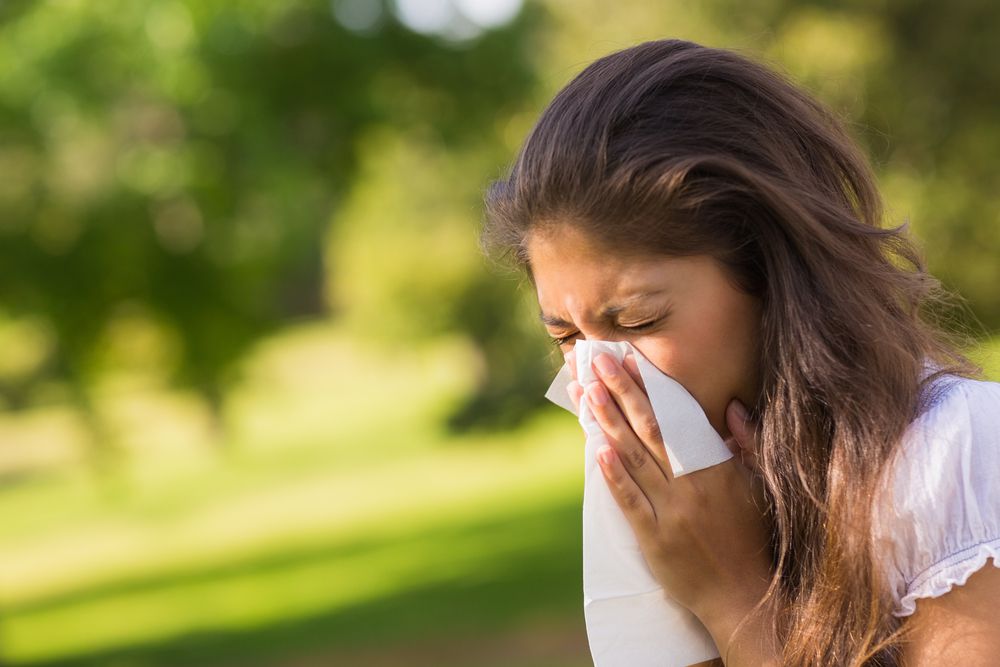Phoenix Prepares for Intense Allergy & Valley Fever Season

The downside of having a wet winter due to the El Nino weather trends is an increase of plant growth, which can result in a messy Phoenix allergy season. The wind patterns that come with all these storms spread airborne viruses throughout our busy metropolitan city. Now that it’s getting warmer, our walk-in health clinics near Tempe and Phoenix have been busy serving those suffering from bad allergies, as well as cold and flu symptoms.
It is important that Phoenix residents are aware of the changes that occur after a wet winter. When there is an increase in ground water accumulation, dormant plants and weeds begin growing. For those who have outdoor allergies, this is not a good thing. Grasses, trees and weeds sprout more quickly than usual, spreading wind-blown pollen and making the allergy season last longer, causing symptoms like the following:
- Continuous or violent sneezing
- Red puffy eyes and nose
- Runny mucus that can inflame sinuses
- Coughing due to tight airway passages and mucus drainage
- Cloudy mental focus
- Decreased productivity and physical movement
Allergies are not contagious, but they do affect your day-to-day activity. There are options out there to help you regain clarity and restore energy so you can tend to your busy schedule. The most common allergy relief options are OTC medications. Some of the most common include Benadryl, which contains Diphenhydramine, an antihistamine that is associated with drowsiness.
There are also non-drowsy options, such as Allegra (Fexofenadine / Pseudoephedrine), Zyrtec (Cetirizine) and Claritin (Loratadine/Pseudoephedrine). In most scenarios, these are the most recommended by our providers at our no-insurance clinic. If you currently take other medications, we advise allowing us to assess your health history and medical list to make sure that OTC medications will not cause adverse health conditions.
Many people do not know that we offer allergy testing in our medical clinics throughout Phoenix. Offering allergy tests is one of our first steps to helping patients get allergy relief. Requesting this type of test allows both of us to know exactly what triggers your symptoms.

We do a series of simple pin pricks on either your forearm or back. Each of the needles has components of common pollen, grass, tree, and food allergies. As your skin swells up in our controlled allergies medical testing clinic, we grade how severe your allergy is to each of these. The ones that cause the most swelling indicate a high allergy.
This test allows us to plan a custom treatment plan for you. One option is a specialized antibody delivered via allergy shots to help you develop a tolerance. Testing also allows helps you be aware of your allergies, so you can make lifestyle changes to avoid these high allergens and limit your interactions with them.
Valley Fever is a condition caused mainly by seasonal storms with heavy winds. Coccidioides is a fungus that lives in the soil in arid parts of the country like Arizona. Inhaling dust containing this fungus can cause the infection we know as Valley Fever. Naturally, when dust devils or full-blown dust storms (haboobs) kick up dust, the chance to inhale these fungus spores is much higher than usual.
The symptoms for Valley Fever are like the common flu resulting in:
- Chills
- Fever
- Severe fatigue
- Night sweats
- Dry cough
- Breath shortness
- Headache
- Weight loss
The dead giveaway symptom of Valley Fever is a painful rash, often presenting on lower legs. Many people overcome this condition naturally. However, it can cause other upper respiratory conditions, like Asthma, due to a compromised immune system.
If you have any type of cold or flu-like symptoms that last longer than 7 to 10 days, seek the attention of our medical providers at Phoenix Family Medical. We also recommend a walk-in visit to our no-insurance clinics if you or your child have a fever of 102 degrees Fahrenheit or higher. We are here to help you manage and recover from severe allergies, Valley Fever and the common cold and flu. If you need to see a doctor, check out which of our locations is closest to you.







